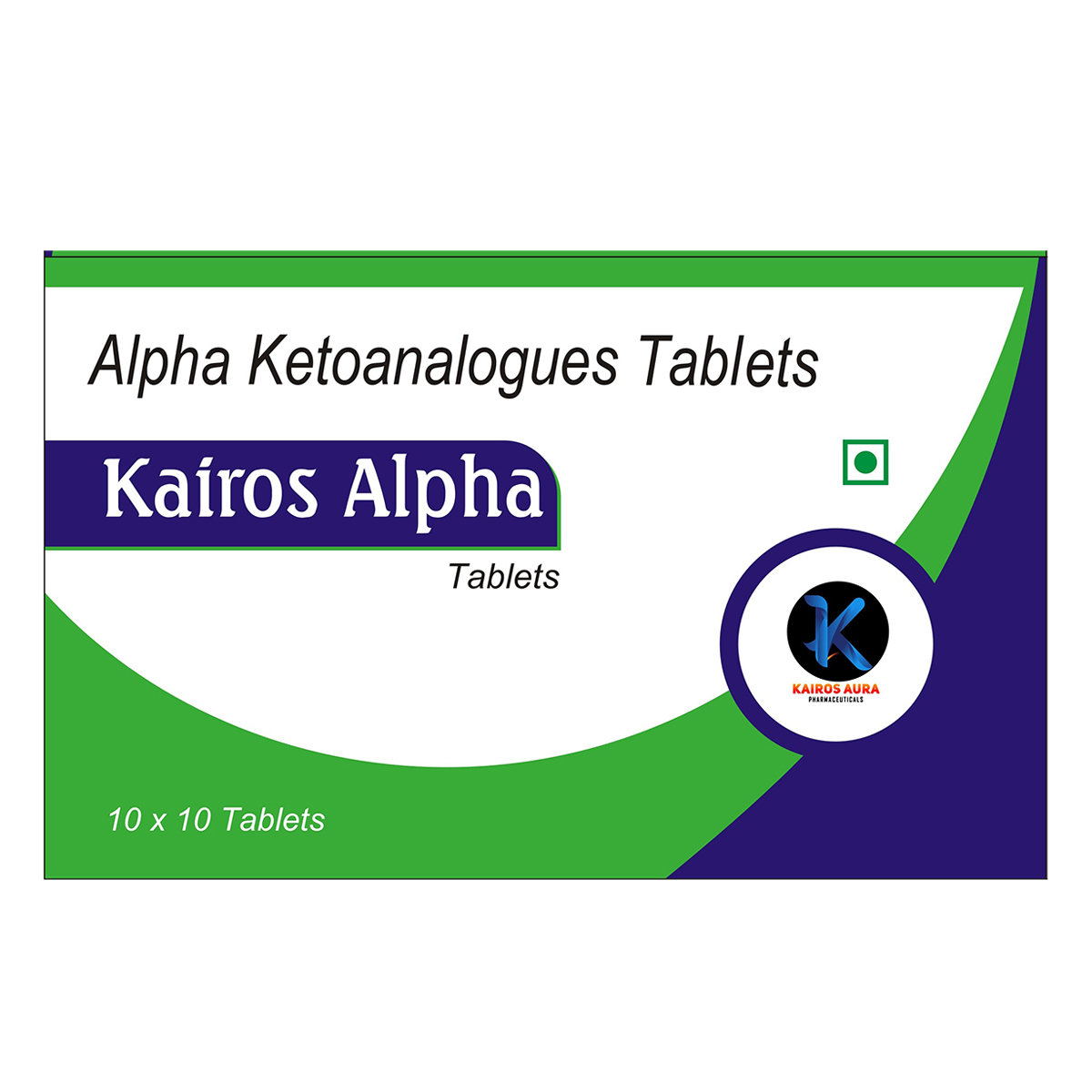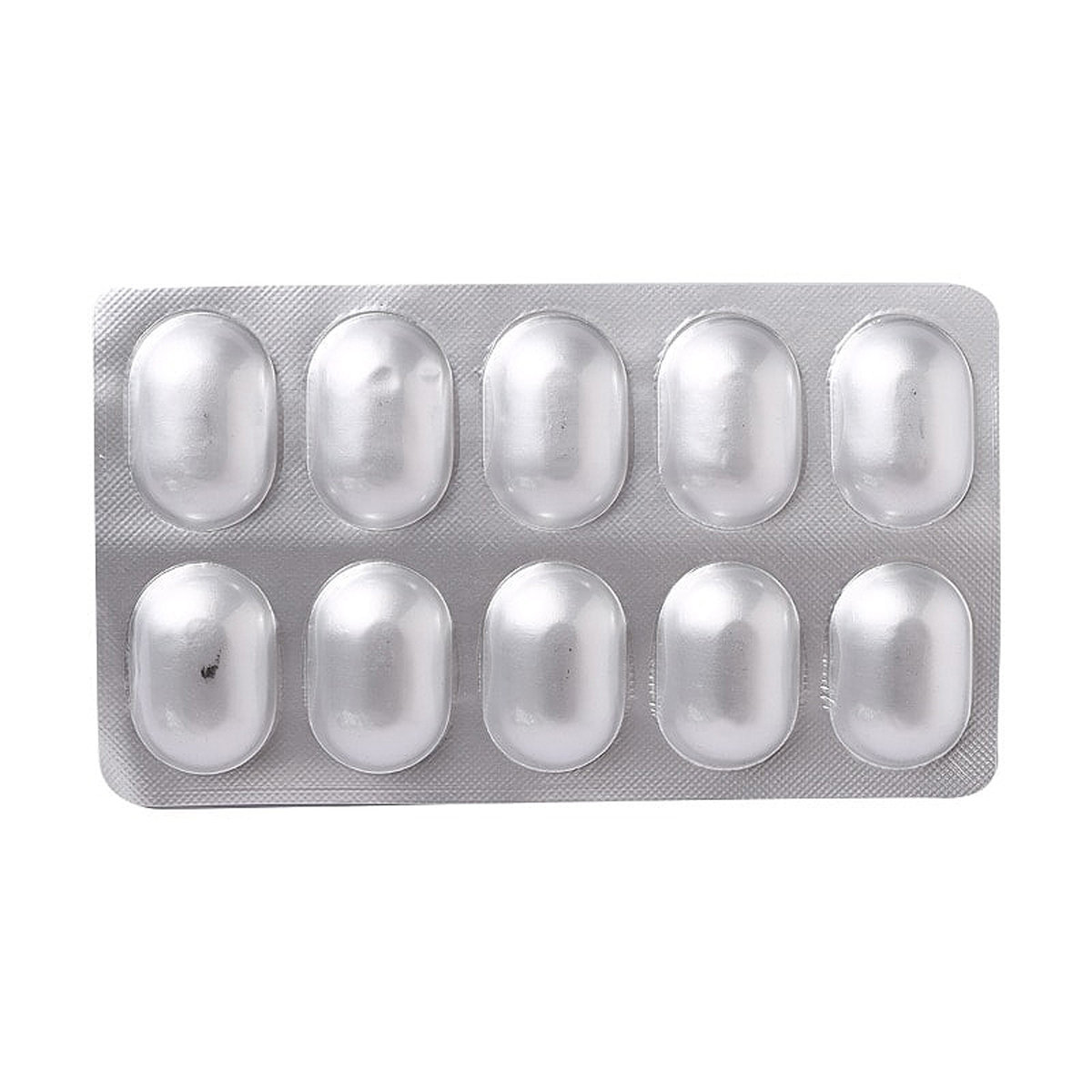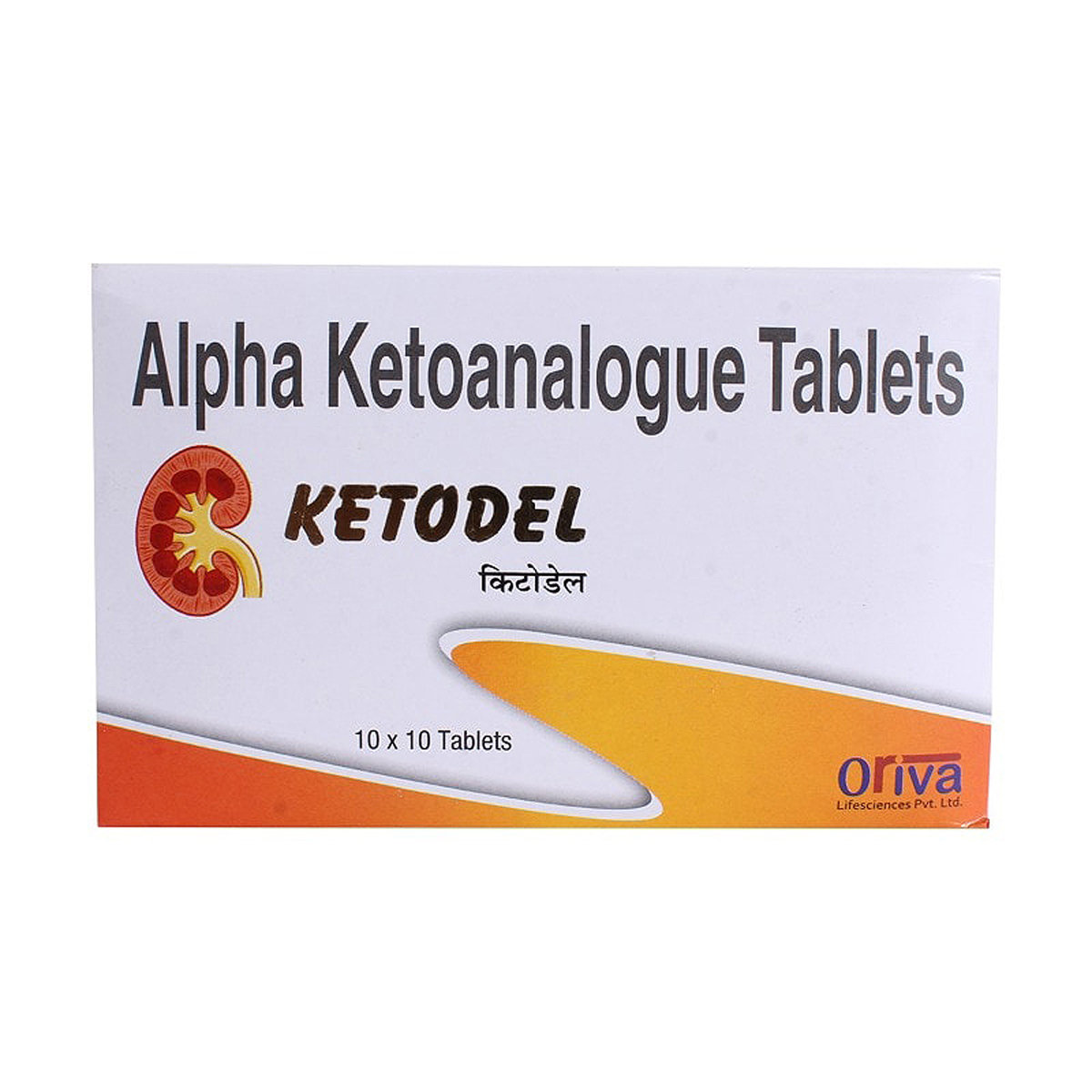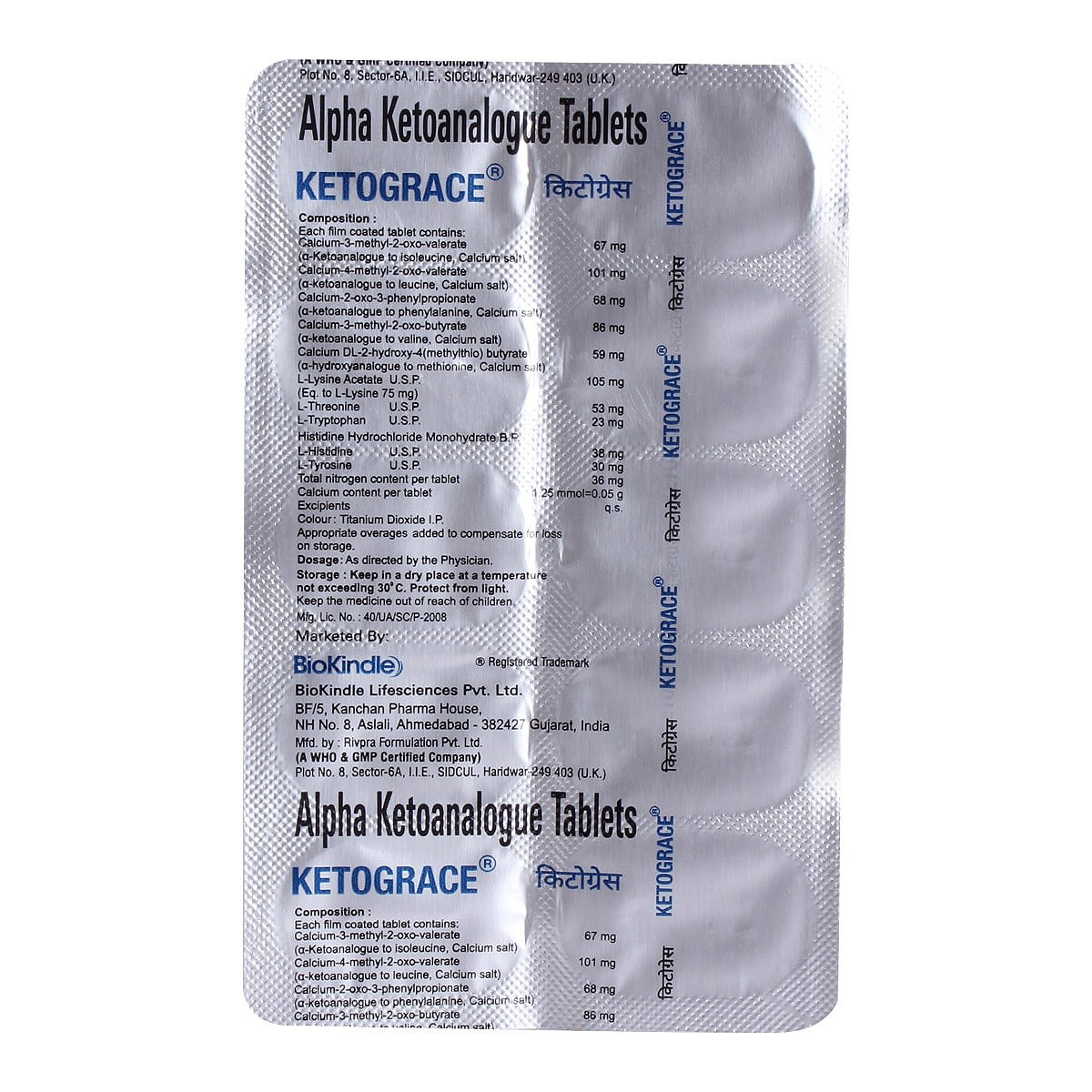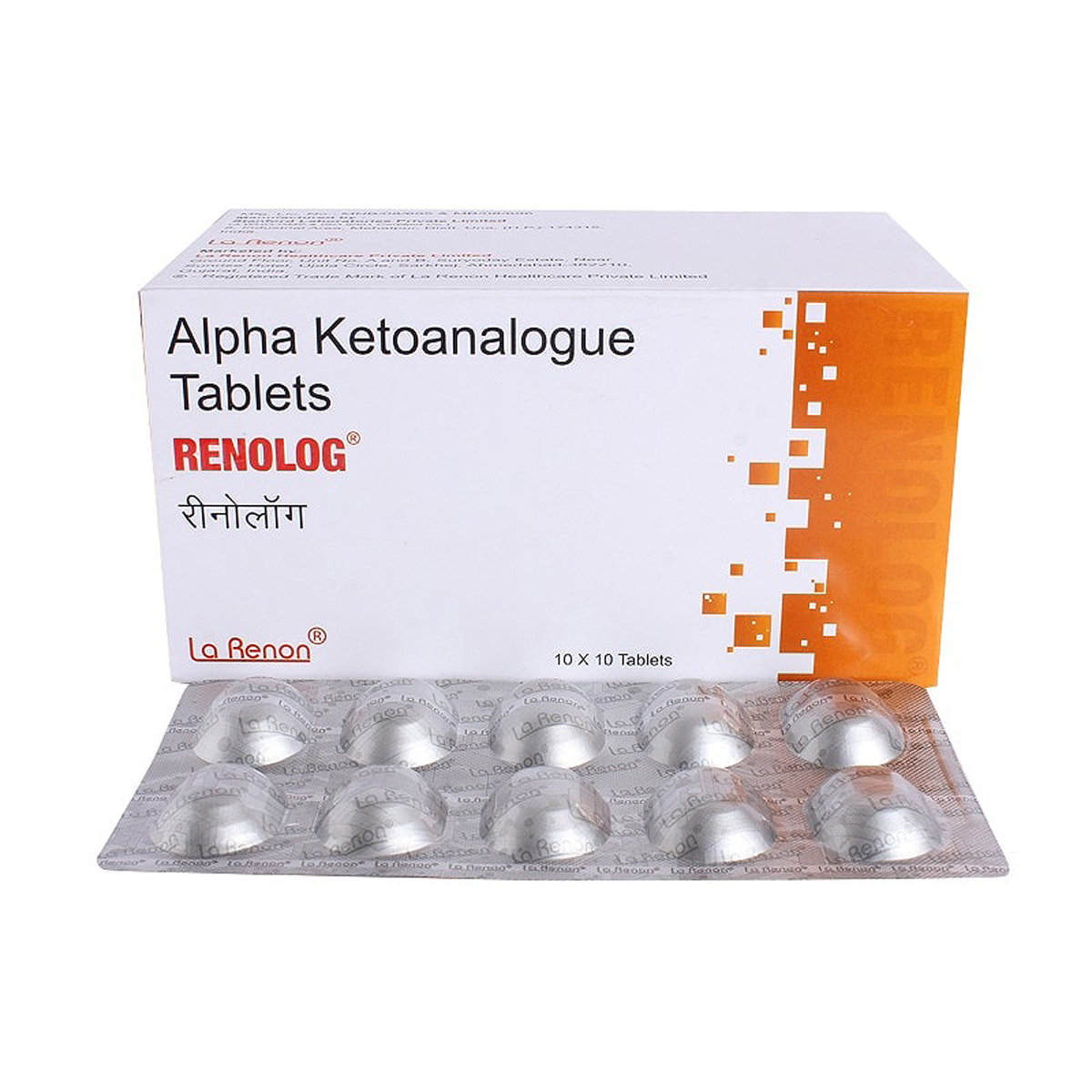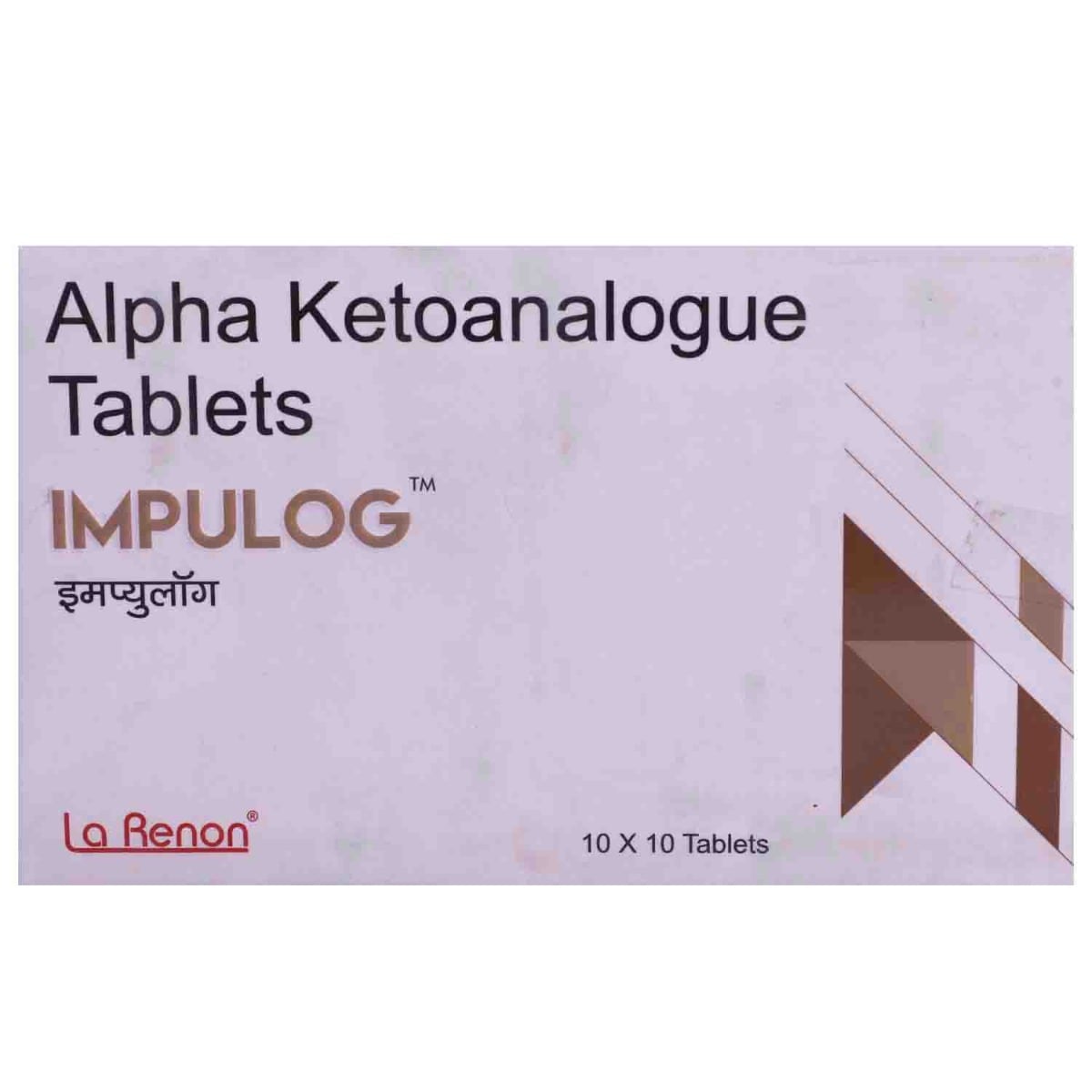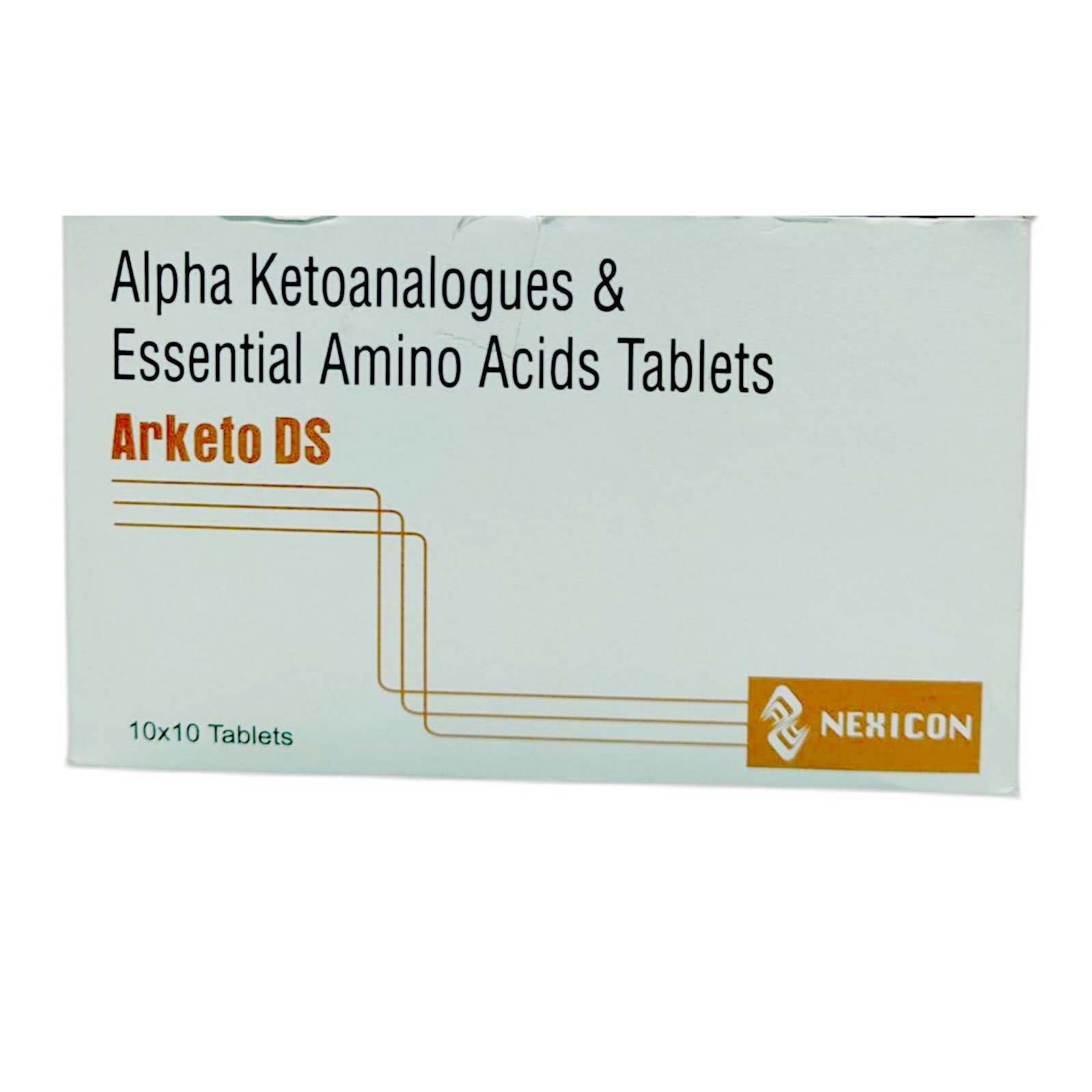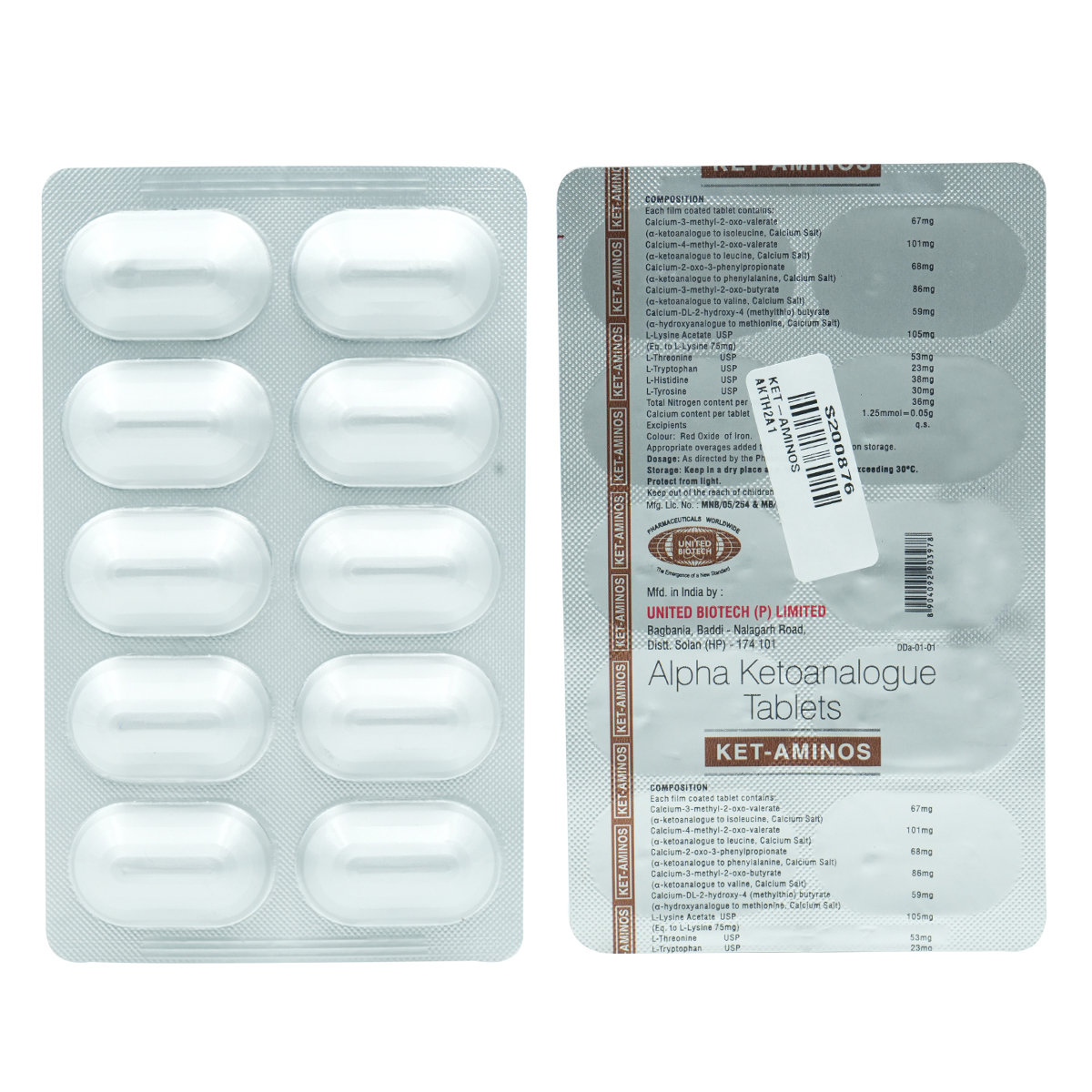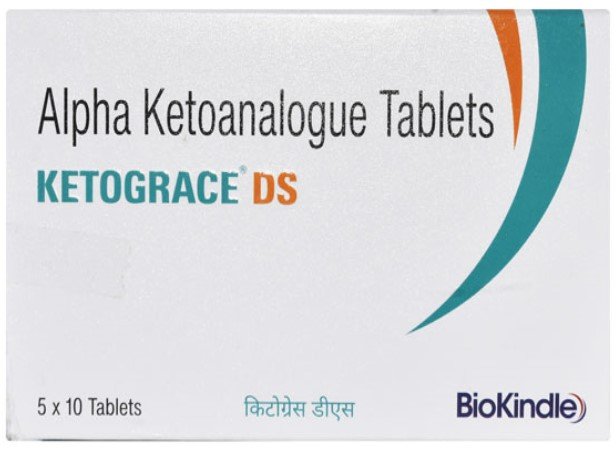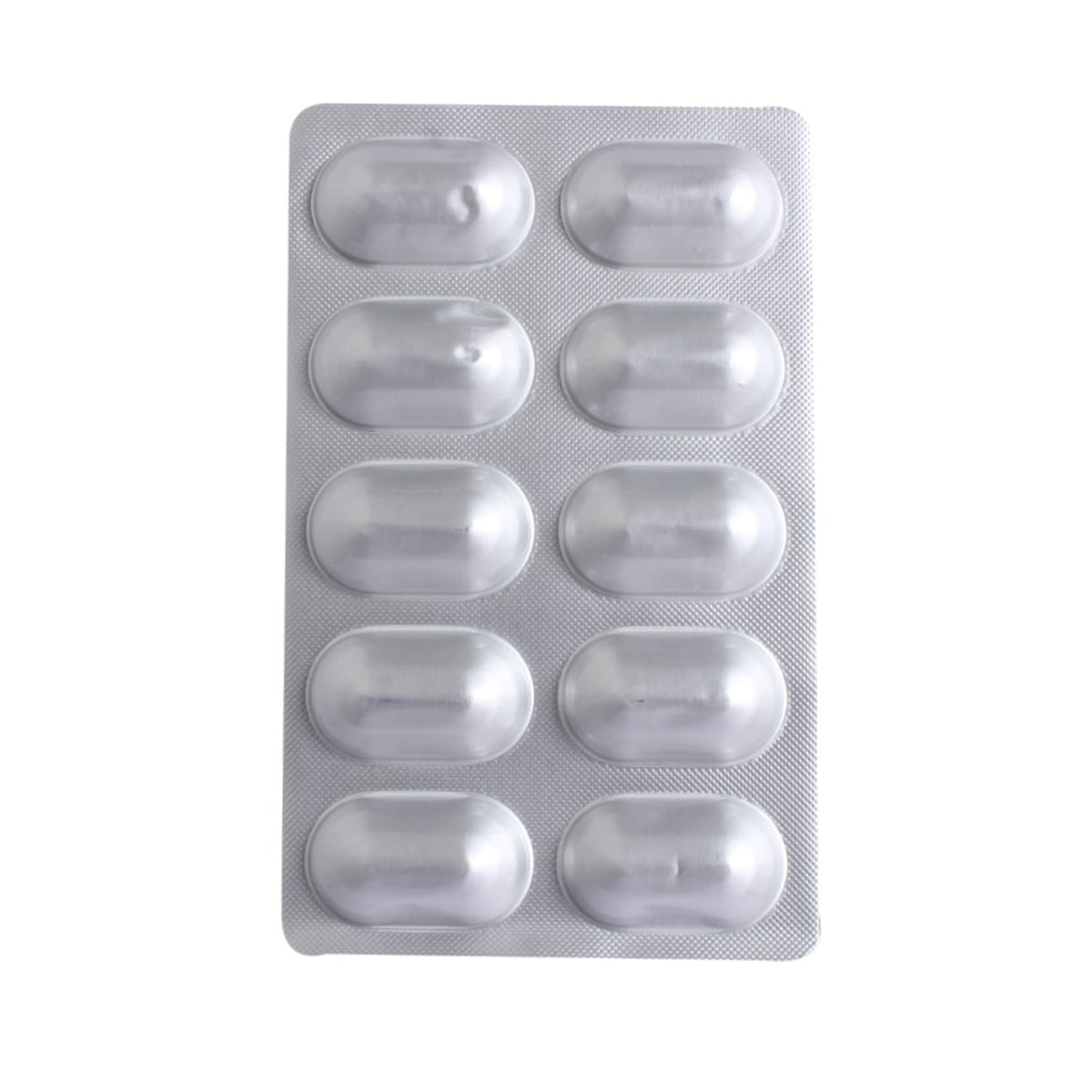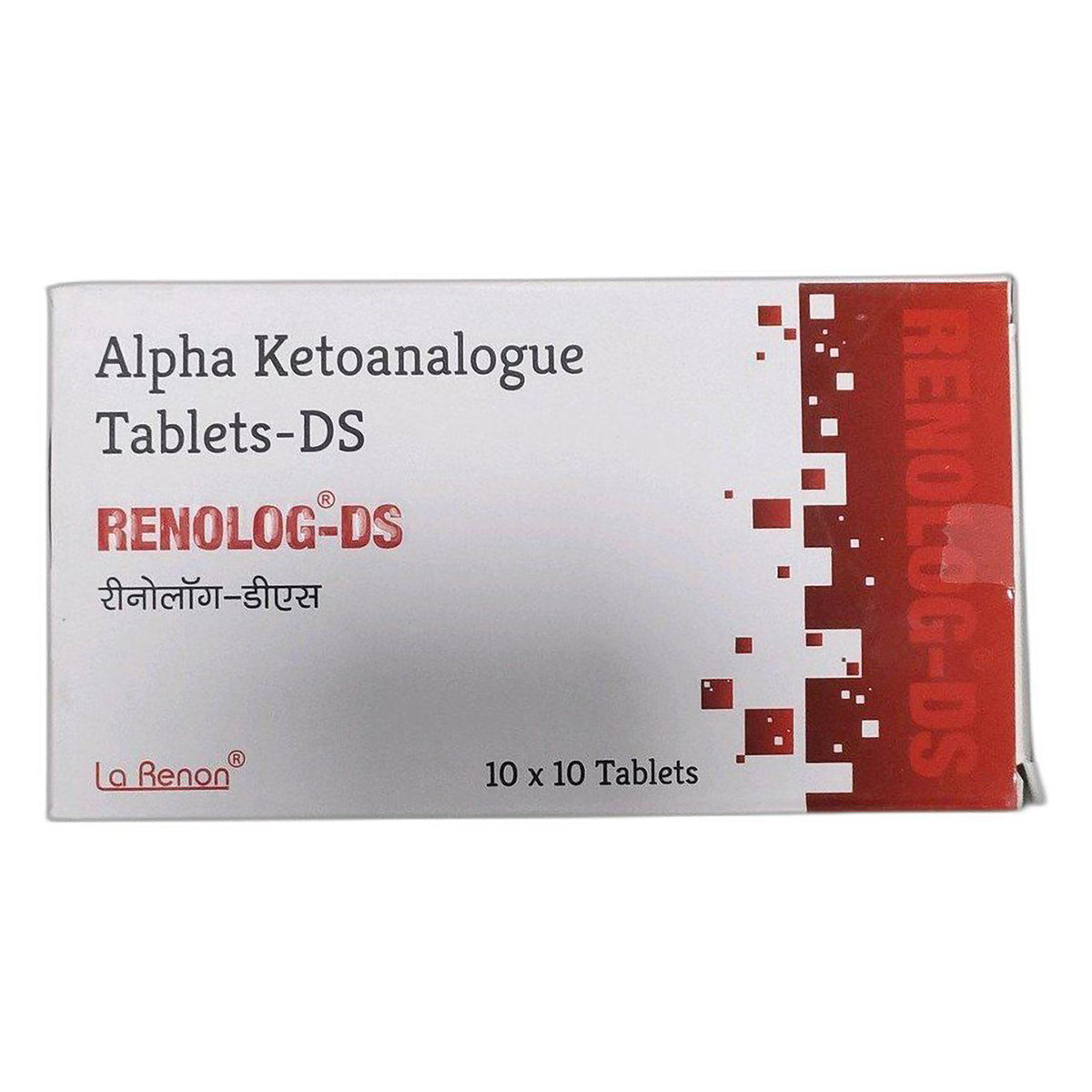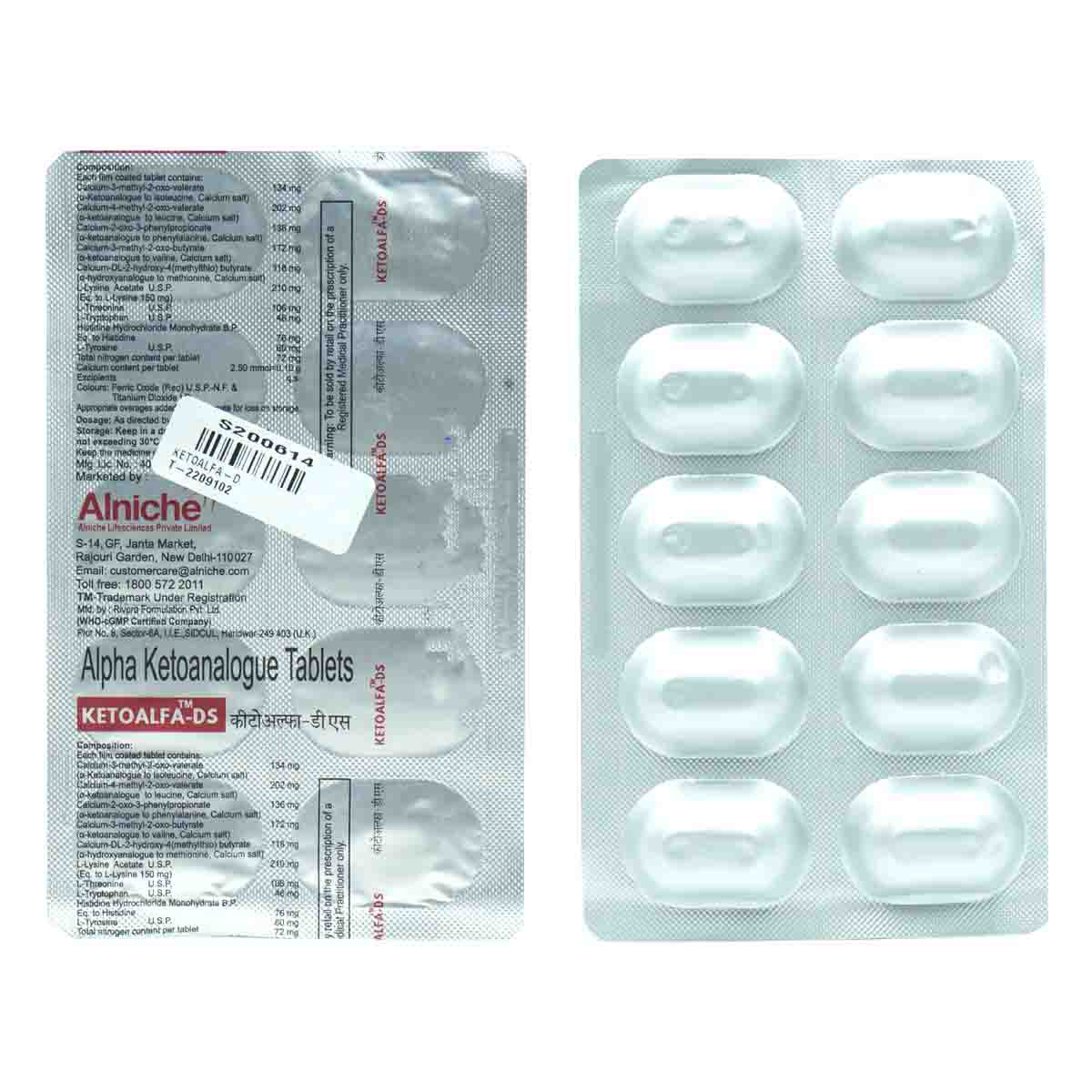Ketolog Tablet
MRP ₹329.55
(Inclusive of all Taxes)
₹49.4 Cashback (15%)
Provide Delivery Location
Online payment accepted
 Prescription drug
Prescription drugWhats That
Composition :
Manufacturer/Marketer :
Consume Type :
Expires on or after :
Return Policy :
About Ketolog Tablet
Ketolog Tablet belongs to a class of drugs called nutritional or dietary supplements. It is widely used in the treatment of chronic kidney disease. Chronic kidney disease (CKD) is a long-term condition where the kidneys don't work as they should. It is usually caused by various conditions such as high blood pressure, diabetes, high cholesterol, kidney infections, kidney inflammation, kidney stones that keep coming back, or an enlarged prostate, long-term, regular use of certain medicines such as lithium and non-steroidal anti-inflammatory drugs (NSAIDs). Make healthy lifestyle changes and ensure that your underlying conditions are well controlled.
Ketolog Tablet contains 'Alpha Ketoanalogue', which prevents the unnecessary increase in urea levels in the blood due to the intake of non-essential amino acids in patients with kidney failure. Thereby improving renal function. It is best if taken along with a low-protein diet as it helps delay the progression of kidney diseases.
Depending on your medical condition, you are advised to take Ketolog Tablet for as long as your doctor prescribes it. Sometimes, you may experience common side effects such as increased calcium levels, nausea, vomiting, diarrhoea, and abdominal pain. Most of these side effects do not require medical attention and will resolve gradually over time. However, you are advised to talk to your doctor if you experience these side effects persistently.
Do not take Ketolog Tablet if you are allergic to any components present in Ketolog Tablet. If you are pregnant or a breastfeeding mother, it is advised to consult a doctor before using Ketolog Tablet. To treat your condition effectually, continue taking Ketolog Tablet for as long as your doctor has prescribed. Please do not stop taking Ketolog Tablet without consulting your doctor. Avoid consuming alcohol along with Ketolog Tablet to avoid unpleasant side effects. Keep your doctor informed about your health condition and medicines to rule out any side effects.
Uses of Ketolog Tablet
Directions for Use
Key Benefits
Ketolog Tablet is used in the treatment of chronic kidney disease. Ketolog Tablet contains “Alpha Ketoanalogue”, and it works by preventing the unnecessary increase in urea levels in the blood due to the intake of non-essential amino acids in patients with kidney failure. Thereby improving renal function. It is best if taken along with a low-protein diet as it helps delay the progression of kidney diseases.
Storage
Drug Warnings
Do not take Ketolog Tablet if you are allergic to any components present in it. Ketolog Tablet should be used in pregnant and breastfeeding women only if clinically needed and the benefits outweigh the risks. To treat your condition effectually, continue taking Ketolog Tablet for as long as your doctor has prescribed. Please do not stop taking Ketolog Tablet without consulting your doctor. Avoid consuming alcohol along with Ketolog Tablet to avoid unpleasant side effects. Keep your doctor informed about your health condition and medicines to rule out any side effects. People with chronic kidney disease (CKD) may need to closely monitor sodium and phosphorus in foods, especially if their kidney disease is advanced.
Diet & Lifestyle Advise
- It is best if taken along with a low-protein diet as it helps delay the progression of kidney diseases.
- People with kidney problems are advised to limit sodium in their diet, including added salt.
- Olive oil is a healthy source of fat and phosphorus-free, making it a great option for people with kidney disease.
- Bulgur is a whole grain wheat product that makes a terrific, kidney-friendly alternative to other whole grains high in phosphorus and potassium.
- Blueberries are packed with nutrients and one of the best sources of antioxidants you can eat.
Side Effects of Ketolog Tablet
- Increased calcium levels
- Nausea
- Vomiting
- Diarrhoea
- Abdominal pain
Habit Forming
Therapeutic Class
All Substitutes & Brand Comparisons
RX
Kairos Alpha Tablet 10's
Kairos Healthcare
₹293.5
(₹26.42 per unit)
10% CHEAPERRX
Renoalfa Tablet
₹299
(₹26.91 per unit)
9% CHEAPERRX
Ketodel Tablet 10's
Oriva Life Sciences Pvt Ltd
₹345
(₹31.05 per unit)
4% COSTLIER
Author Details
We provide you with authentic, trustworthy and relevant information
FAQs
Drug-Drug Interactions Checker List
- CIPROFLOXACIN
- TETRACYCLINE
- ESTRAMUSTINE
Special Advise
- You'll also be advised to have regular check-ups to monitor your condition.
- People with CKD may need to closely monitor sodium and phosphorus in foods, especially if their kidney disease is advanced.
Disease/Condition Glossary
Chronic kidney disease (CKD): Chronic kidney disease (CKD) is a long-term condition where the kidneys don't work and should. It is usually caused by various conditions such as high blood pressure, diabetes, high cholesterol, kidney infections, kidney inflammation, kidney stones that keep coming back, or an enlarged prostate, long-term, regular use of certain medicines such as lithium and non-steroidal anti-inflammatory drugs (NSAIDs).

Have a query?
Alcohol
Safe if prescribed
You are recommended not to consume alcohol along with Ketolog Tablet to avoid unpleasant side effects.
Pregnancy
Consult your doctor
Ketolog Tablet should be used in pregnant women only if clinically needed, and the benefits outweigh the risks. Please consult the doctor; your doctor will prescribe only if the benefits outweigh the risks.
Breast Feeding
Consult your doctor
Caution should be exercised, and it is advisable to consult a doctor before using it. The doctor will prescribe if he or she thinks the benefits outweigh the risks.
Driving
Safe if prescribed
Drive only if you are physically stable and mentally focused. If you experience drowsiness after taking this medication, you should not drive or operate machinery or vehicles.
Liver
Consult your doctor
Inform your doctor before receiving the Ketolog Tablet if you have a liver impairment/disorder history. Your doctor will prescribe only if the benefits outweigh the risks.
Kidney
Consult your doctor
Ketolog Tablet can be taken safely when prescribed. Usually, it does not affect the kidney.
Children
Safe if prescribed
The safety and efficacy of Ketolog Tablet in children have not been established. Ketolog Tablet is not recommended in children.




